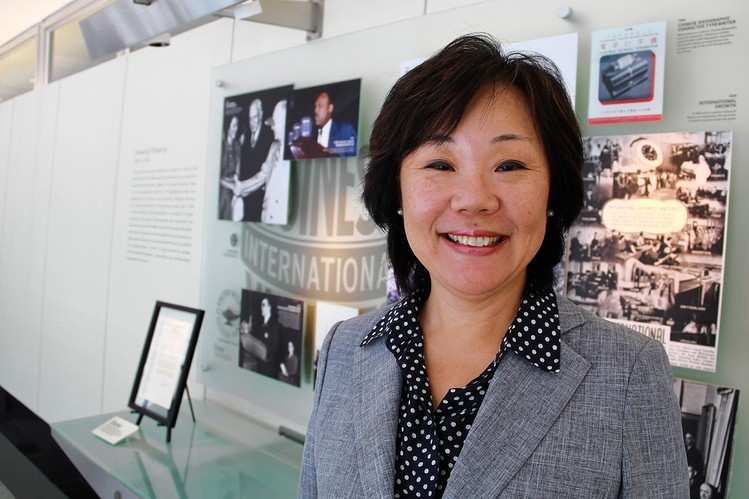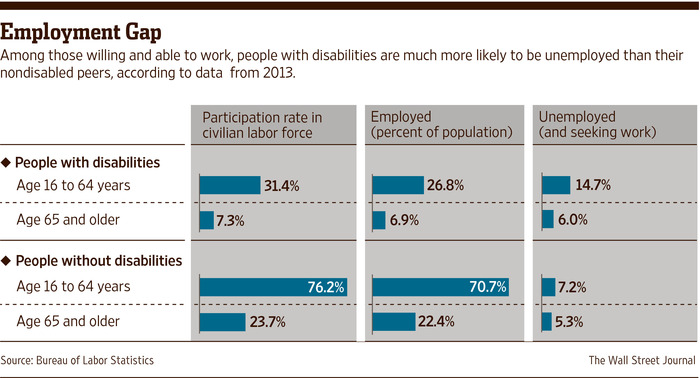
Platini to take part in EU Sports Ministers meeting
October 20, 2014
Justice Dept. accused of using Social Security for ‘Nazi dumping’
October 20, 2014 
ENLARGE
Here’s a C-suite role you may never have heard of: chief accessibility officer.
But as demographic and regulatory developments bring disability issues squarely into the workplace—and the marketplace—companies will find themselves paying closer attention, says
Frances West,
who was appointed CAO at
International Business Machines
Corp.
in July.
The 57-year-old Ms. West, who began her career as an engineer at IBM in 1979, is responsible for making sure IBM delivers products and services that people of all ages and abilities can use. She also guides efforts to make IBM’s own workplace accessible.
She spoke to The Wall Street Journal about this emerging role. Here are edited excerpts:
Market Sensitivity
WSJ: Why did IBM create this position?
MS. WEST: One reason is demographics. We see the emergence of the aging population on one end, and on the other end the millennials. They’re very socially conscious, so the topic of mainstreaming people with different abilities is very natural for them.
Second, the U.S. has new regulations for federal contractors [requiring them to aim for 7% of the workforce being people with disabilities]. And we see new legislation and policies globally—in Europe, Canada, Australia and China.
Last, we’re a technology company, and the proliferation of mobile is relevant to disability. It has [changed how we think about] ease of use and accessibility, and making sure that our technology is adaptive and available for anyone to use anytime, anyplace.
WSJ: How do you get engineers and designers to accept this mandate?
MS. WEST: We’ve embedded accessibility into the basic training for new designers. It used to be you tested for accessibility after you finished developing the product. That’s too late. It has to be considered from the start.
WSJ: What does IBM need to do better when it comes to serving customers with disabilities?
MS. WEST: The challenge in general is the whole buy-in of accessibility as a very user-experience-based concept. It’s coming at us a lot faster than we anticipated. The market is creating demand for IBM to respond, so I think it’s really a speed issue. We have all the components to continue our leadership, but the speed of recognizing the market demand and the speed of responding to it is the focus here.

ENLARGE
WSJ: What is slowing it down?
MS. WEST: There are a lot of competing interests like in any organization. It isn’t so much slowing it down, it’s the understanding that the market is here and now. Sometimes when you do something for a long time, you may not be as sensitive to what the market is asking for. If we can dial up our sensitivity meter it will be a great thing because we’ve done the hard work and the investment, so really it’s just the time to respond.
WSJ: How is the regulatory landscape changing?
MS. WEST: The watershed was December 2006, when the United Nations passed the Convention on the Rights of People with Disabilities. I equate it to the Kyoto Treaty for the green movement. When that treaty was signed, you saw an unleashing of creativity and innovation for green businesses. We see a similar situation happening [in the disability arena].
WSJ: On your first day, you went to Washington to urge the Senate to ratify the treaty. Why?
MS. WEST: We’re talking about a human-rights issue, and technology is a very important underpinning of making this principle come alive. If we don’t sign the treaty, we won’t have the opportunity to influence the technology standards that will be established in this area. We want to be at the table. This isn’t the time to shut ourselves off from this global discussion.
A Reason to Innovate
WSJ: What do companies need to do to make their workplaces more accessible?
MS. WEST: I think people respond very well to a leader who says that this is important for the company, not just for the purpose of hiring but it’s good for the business.
WSJ: “Reasonable accommodation” for people with disabilities often gets employers in legal trouble. How does IBM think about that?
MS. WEST: If you leave it to individual managers to accommodate, it can be very time-consuming and costly. And frankly, it can also be a situation where it’s a disincentive for the manager to hire, especially if they’re overworked and have to spend extra time figuring out how to understand accessibility.
That’s why large companies need to centralize decision support. If you’re a manager in IBM and you want to hire a person with a disability, and there’s a cost associated with it—for example, buying a screen reader—that cost will come out of a centralized budget. We also created a global app called Accessible Workplace Connection. Anyone can log on, whether they’re a new hire or a manager trying to procure an accommodation for an employee. It walks you through the accommodations that are available and how to put them in place.
WSJ: How does a CAO get the attention of the top leaders?
MS. WEST: We want to challenge the notion that this is a low-level compliance play. It isn’t an HR or niche initiative. Our experience is, if you think about it differently, you can view this as a reason for innovation and then translate that into business differentiation. And that’s how we get to the C-suites and people who influence resources and budgets.
Ms. Weber is a reporter for The Wall Street Journal in New York. She can be reached at lauren.weber@wsj.com.


